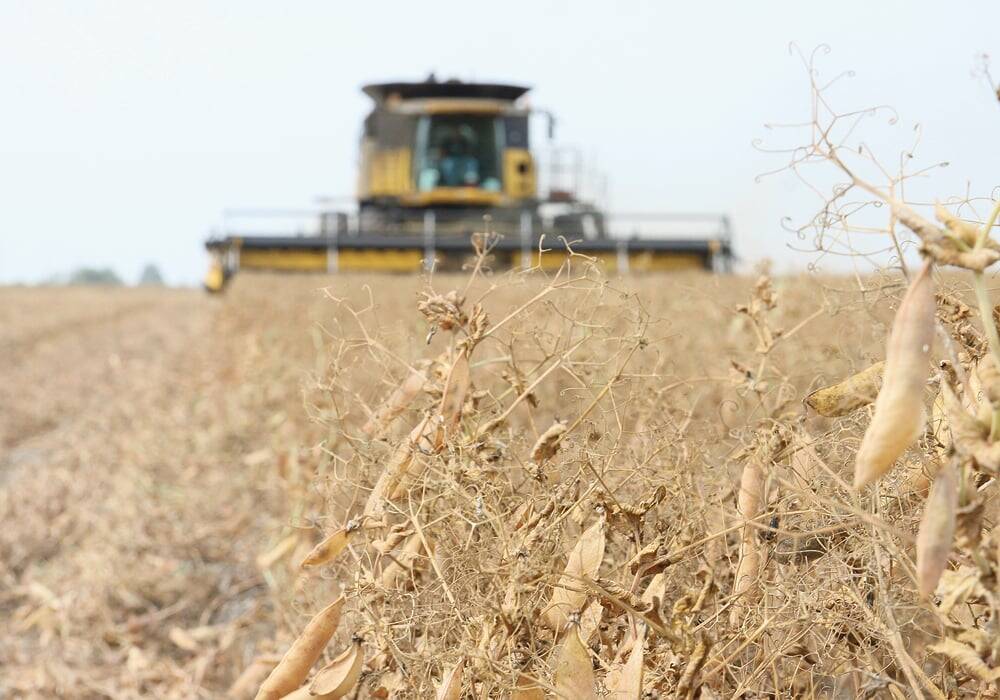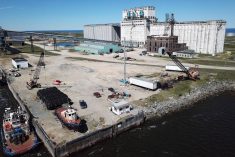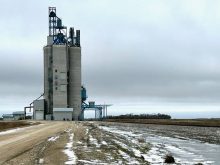The Canadian Transportation Agency has asked the grain industry for reaction to a proposal by Canadian National to exempt various Vancouver destinations from federal limits on freight rates.
The issue flows from a CTA ruling in December that both CN and CP exceeded the maximum revenue they’re entitled to earn annually hauling grain to terminals in Port Metro Vancouver from across the Prairies.
“We have no comment at this time,” said Wade Sobkowich, executive-director of the Western Grain Elevators Association. Farm groups didn’t offer any comment on the issue. They have until Feb. 29 to comment on it to the CTA.
Read Also

Public-private consortium targets pea breeding
The partnership, described as the first of its kind in Canada, aims to establish a database using AI to enhance breeding on the Prairies.
CN’s contention is that some of the grain it transports goes to facilities in the Vancouver area that reload the grain into export containers or is handed off to the Southern Railway of British Columbia for delivery to terminals. In a highly technical presentation to the agency, CN said none of these sites should qualify “as a port in British Columbia” where grain is delivered by rail under the federal revenue rules for shipment by a vessel to overseas destination.
There was no determination of how much of CN’s annual west-bound grain traffic could be affected by the case.
CN said in an email that the existing arrangement “unintentionally discriminates against container-based supply chains that inherently offer greater flexibility yet are higher cost than bulk shipping. This stifles development and growth of innovative, value-added supply chain alternatives that essentially did not exist when the revenue limit started, such as containers with lentils and other special crops source loaded in Saskatchewan.”
As well, the railway added that it “is a structural impediment precluding railways and the western grain industry from responding more effectively to market and competitive forces. It discourages railways from increasing resources and assets to meet seasonal demand peaking and investing in surge capacity for unexpected peaks.”
CN urged the review of the revenue limits “to remove constraints to appropriate pricing so as to encourage growth and innovation for western grain.”
CN lists sites in Surrey including Thornton Yard, the Vancouver Intermodal Terminal, Global Agriculture Transloading and the Parrish and Heimbecker Cloverdale Inland Terminal as among the delivery points that shouldn’t be covered by the revenue rules.
That’s because grain can’t be loaded directly from them onto a ship. “These facilities store, transfer or transload grain arriving by rail for subsequent carriage by truck over a road.” CN contends the Southern Railway shouldn’t be included in the federal program just as the movement of grain to the Port of Churchill by a provincially regulated railway is excluded from the federal limits.
CTA said other traffic than that identified by CN could be affected if the railway’s contention was upheld. The revenue entitlement program has been in existence for 14 years without being challenged on these grounds by CN or CP.
The agency said it had always considered grain moving to Vancouver as being classified under the revenue entitlement program unless it was intended for domestic consumption or shipment to the United States.
When the revenue program began, some in the grain industry questioned the agency on whether a claim like CN has made would be possible. At the time, it said it “would deal with any future situations that arose if necessary.” The Southern Railway was not considered an issue.
Transloading facilities tend to be located away from the congested areas along the waterfront and the containers moved by road to a terminal that handles container ships.
















